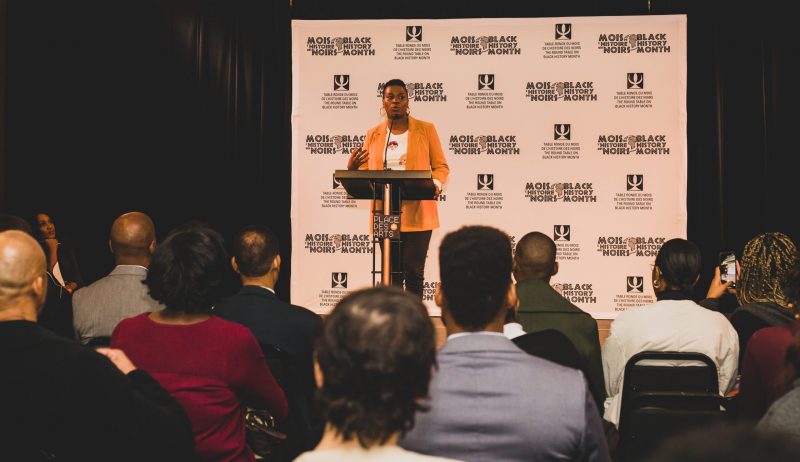The 29th edition of Black History Month in Montreal kicked off on Jan. 23 at Place des Arts with a conference that introduced this year’s theme, representative spokespeople and laureates, and the events that will take place in February.
This year’s edition of Black History Month is called “Here and Now,” which focuses on celebrating Black excellence through the achievements of the younger Black generation in Montreal, and encouraging unity and action towards Black cultural education in Quebec.
Michael Farkas, president of the board of directors for Black History Month, said it “allows the opportunity for Black excellence to be recognized, it creates awareness for all people, it brings us together, and it reminds us that Black history is a part of all history.”
For Farkas, recognizing Black youth contributing to Black excellence is vital in empowering the generation of the future. “There is an urgency to see the Black community, and particularly the youth, to come in and really play the vital role that they can, so that’s ‘Here and Now,’” said Farkas. “That means there is a space for them and a place for them and they need to be totally invested in the fabric of our society.”
Singer and songwriter Sarahmée Ouellet, and comedian and actor Aba Atlas were chosen as the spokespeople for Black History Month. Alongside them, 12 distinguished Black youth from Montreal who excelled in their respective areas, which include teaching, entrepreneurship, and the arts, were chosen as this year’s laureates.
Shanice Nicole, one of the chosen laureates, is a feminist educator, writer and a curator of free community resources in organizations such as the Black Foundation of Community Networks Scholarship Directory and All Black Everything in Montreal. She is working on a children’s book scheduled for publication in 2020 called Dear Black Girls.
“Young people are revolutionary and throughout history, young people have always been at the front and forefront of movements,” Nicole said of this year’s theme. “[Young people] have such capacity for change and a willingness as well to change that I think is really exciting.”
Atlas said his race never came into question in Ethiopia, where he grew up, as it is a predominantly Black country.
“Once I immigrated to Canada, that reality changed because the environments are different,” said Atlas. “That led me to want to know more about what it means to be Black, and I think it led me to where I am today; the importance of my race, the importance of my identity in general, and how it helps me to navigate the world,” he added, crediting his journey of education and empowerment.
According to the Canadian government’s webpage on Black History Month, the lack of any proper Black history was what inspired historian Carter G. Woodson to found “Negro History Week,” in 1926, which became Black History Week in the 70s. In 1976, it finally became Black History Month. According to the Mois de l’Histoire des Noirs’ website, the month of February was chosen because it was the birth month of two celebrated slavery abolitionists: Frederick Douglass and Abraham Lincoln. The purpose of this event was to educate the public and to empower the Black community by teaching Black history objectively and fairly, and to advocate for Black history to be taught in public schools.
Black History Month has been celebrated in Montreal for decades by public and private institutions. Despite this, it was only officially adopted into law by the Quebec National Assembly in 2007, inaugurating February as Quebec’s official Black History Month, according to the Mois de l’Histoire des Noirs’ website.
Catherine Verdon Diamond is a local weather and traffic presenter, and media personality at CBC. As the main public speaker and host of the event, Diamond invited the public to “get to know Black culture in all its forms, as infused into all of these shows, exhibitions, conferences and screenings more than 150 cultural and social activities themed around the achievements of Black communities will be in the spotlight.”
Photo courtesy of Napoleon Communications
